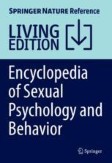Search
Search Results
-
Value-driven attention and associative learning models: a computational simulation analysis
Value-driven attentional capture (VDAC) refers to a phenomenon by which stimulus features associated with greater reward value attract more attention...

-
Predictive Processing During Cue-Outcome Associative Learning in Autistic Children
PurposePredictive coding theories posit that autism is characterized by an over-adjustment to prediction errors, resulting in frequent updates of...

-
Limits of flexibility and associative learning in pigeons
In a recent study, Wasserman, Kain, and O'Donoghue ( Current Biology , 33 (6), 1112–1116,
2023 ) set out to resolve the associative learning paradox by... -
An open-source behavior controller for associative learning and memory (B-CALM)
Associative learning and memory, i.e., learning and remembering the associations between environmental stimuli, self-generated actions, and outcomes...

-
White matter microstructural correlates of associative learning in the oldest-old
The ability to learn associations between events is critical for everyday functioning (e.g., decision making, social interactions) and has been...

-

-
A simple semi-automated home-tank method and procedure to explore classical associative learning in adult zebrafish
The zebrafish is a laboratory species that gained increasing popularity the last decade in a variety of subfields of biology, including toxicology,...

-
Examining individual learning patterns using generalised linear mixed models
Everyone learns differently, but individual performance is often ignored in favour of a group-level analysis. Using data from four different...

-
The impact of working memory testing on long-term associative memory
The long-term fate of to-be-remembered information depends in part on the conditions of initial learning, including mental operations engaged via...

-
Interindividual variations in associative visual learning: Exploration, description, and partition of response characteristics
Relying on existing literature to identify suitable techniques for characterizing individual differences presents practical and methodological...

-

-
Age-Independent Transfer After Successful Associative Mnemonic Training
Generalization of training to support the performance on new tasks—transfer—has been much studied. One hypothesis is that transfer occurs if...

-
Scaling a common assessment of associative ability: Development and validation of a multiple-choice compound remote associates task
The assessment of creativity as an individual difference has historically focused on divergent thinking, which is increasingly viewed as involving...

-
A-learning: A new formulation of associative learning theory
We present a new mathematical formulation of associative learning focused on non-human animals, which we call A-learning. Building on current animal...

-
Generalization at Retrieval Using Associative Networks with Transient Weight Changes
Without having seen a bigram like “her buffalo”, you can easily tell that it is congruent because “buffalo” can be aligned with more common nouns...

-
An exploration of error-driven learning in simple two-layer networks from a discriminative learning perspective
Error-driven learning algorithms, which iteratively adjust expectations based on prediction error, are the basis for a vast array of computational...

-
Incidental auditory category learning and visuomotor sequence learning do not compete for cognitive resources
The environment provides multiple regularities that might be useful in guiding behavior if one was able to learn their structure. Understanding...

-

-
Child-oriented word associations improve models of early word learning
How words are associated within the linguistic environment conveys semantic content; however, different contexts induce different linguistic...

-
Individual Differences in Disqualifying Monitoring Underlie False Recognition of Associative and Conjunction Lures
The current study leveraged experimental and individual differences methodology to examine whether false memories across different list-learning...

